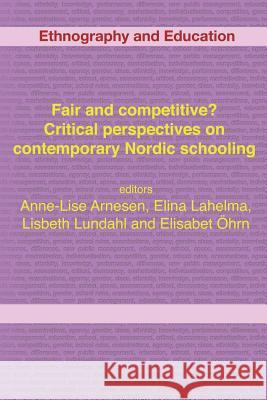Fair And Competitive? Critical Perspectives On Contemporary Nordic Schooling » książka
Fair And Competitive? Critical Perspectives On Contemporary Nordic Schooling
ISBN-13: 9781872767147 / Angielski / Miękka / 2014 / 172 str.
The Nordic countries have traditionally been regarded as archetypal representatives of social democratic welfare states. But particularly since the 1990s the concept of universal welfare and education has increasingly been infused with neo-liberal ideas and technologies, even if the extent to which this has happened and its expressions vary from one Nordic country to the next. Marketisation, new public management and an emphasis on individualism and individual responsibility have profoundly affected education, with increased focus on competition, knowledge, performance and assessment. This is the context, the educational landscape of this book.Through ethnographic studies in varied educational institutions in Finland, Norway and Sweden we ask, how these political aspects are visible, how they are negotiated and contested in the practices and everyday lives of students and teachers in schools, and what are their implications for democratic influence? Can the competitive school be at the same time fair? The chapters are written from a critical ethnographic perspective, using ethnographic data and analysis to address power relations in education with reference to the political aim of social inclusion and democracy. The authors address diversities and differences and their interpretations are informed by an intersectional understanding of gender, ethnicity and social class.











